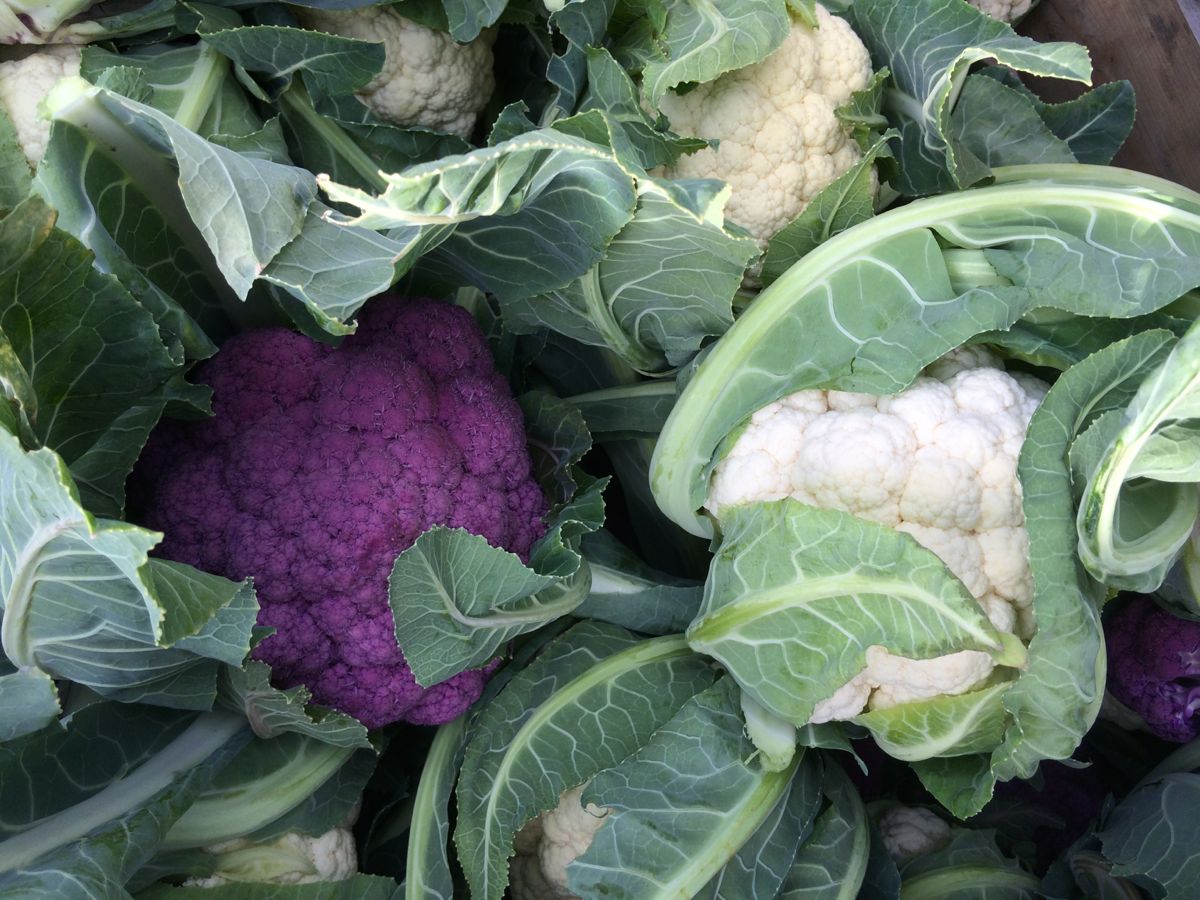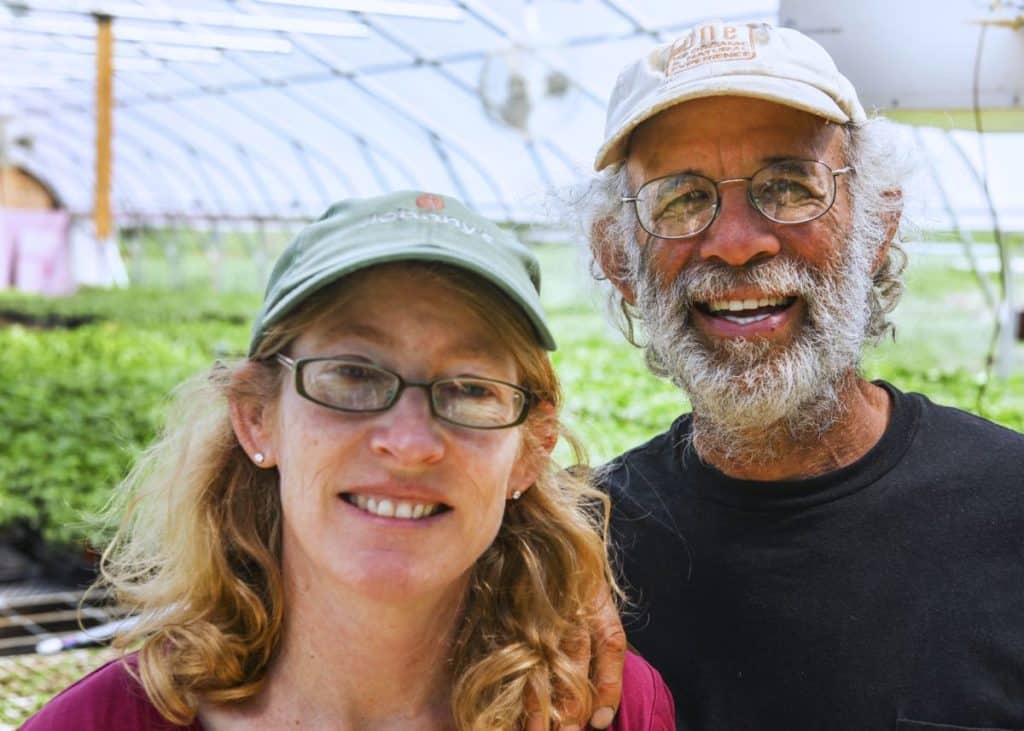Win-win
- On: October 21, 2015
 0
0
We finessed an interesting deal this week. As I’ve explained before, we buy potatoes from organic farmers that we trust. When we started our CSA, I made Steve agree that we would grow everything except potatoes. He would want every piece of equipment needed to grow potatoes, and it’s a big line-up. Our friends/neighbors Peg and Matt Schaeffer of Sandhill Family Farms have a bumper potato crop this year but not enough employees to get them harvested. We have an unusually large crew working for us this fall. We made a deal – our crew will help dig the potatoes, and we’ll buy them at a reasonable cost. They have nice varieties; German butterballs for the November 5/6 box, and Carolas and Red Marias for the storage share. Matt dropped samples at our house and we enjoyed a mini potato-cooking festival.
Oddly, the toughest part of the deal was finding enough containers to hold the potatoes. Every economy has its currency. Right now, both our farms are running short of plastic crates for harvest. We filled all ours with sweet potatoes and winter squash. They filled theirs with potatoes. We scrounged and washed out every crate available while Matt emailed “Beth, we are DESPERATE for crates.”
Two employees at a time have gone to the Schaeffers’ to help. We have heard nothing about the harvest, only about the ducks, chickens, sheep and a donkey named Daisy. That’s all anyone has talked of. I am afraid we will lose our entire crew to the Schaeffers’ petting zoo.
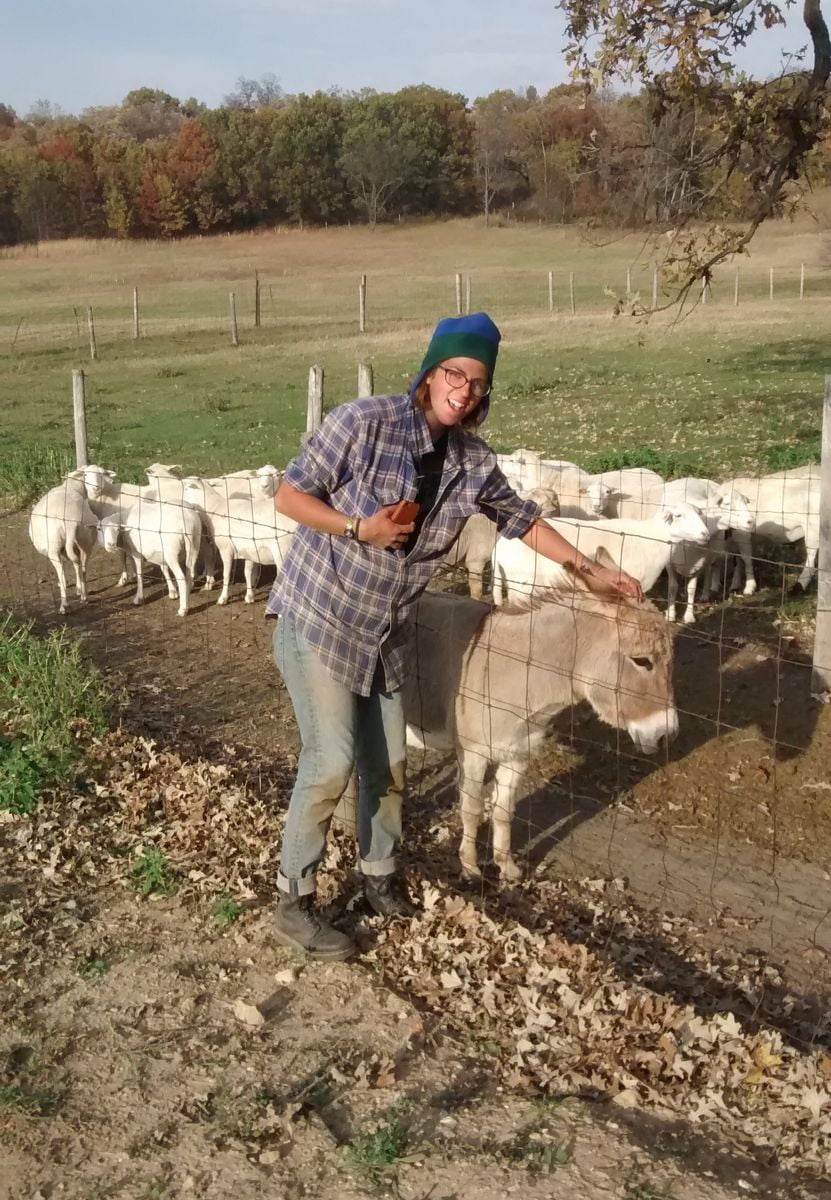
Kelcie and Daisy. Photo by Madeleine.
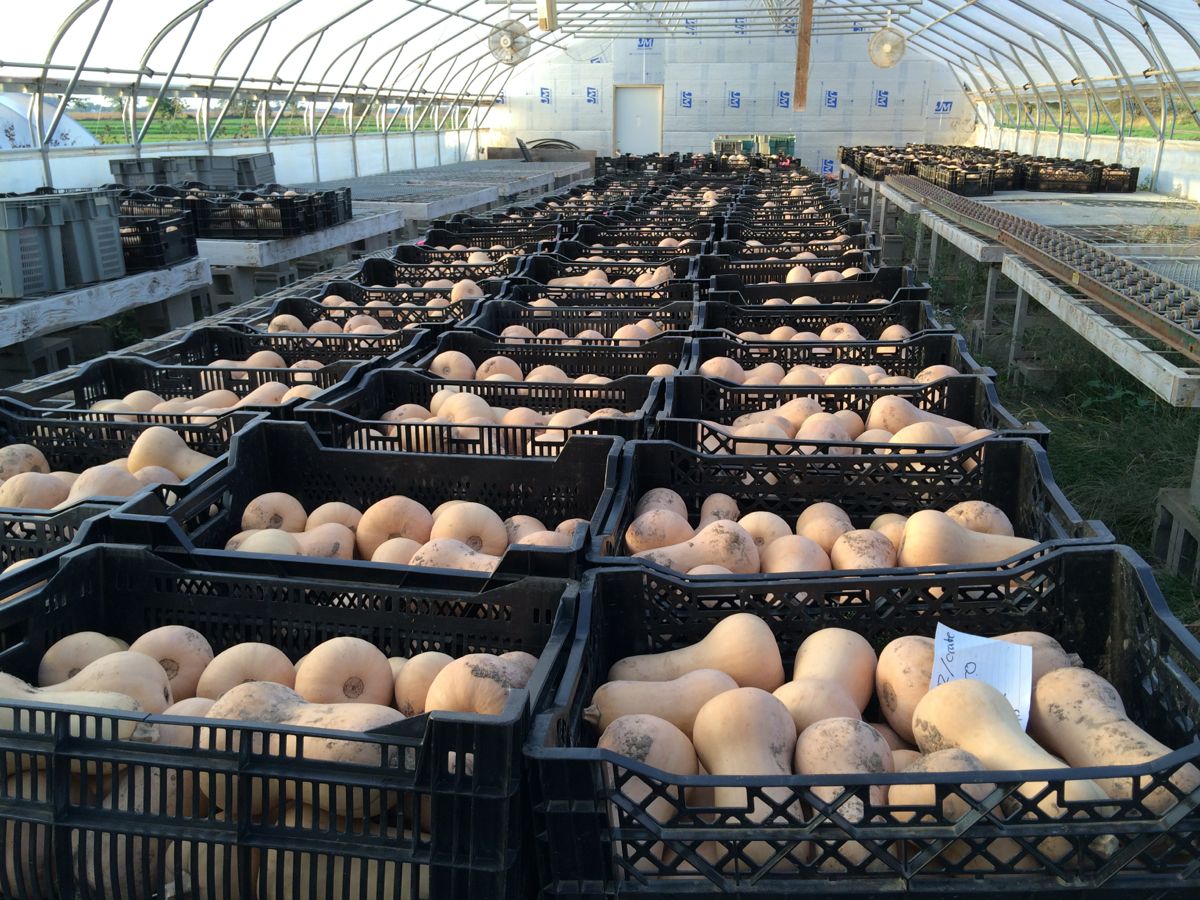
Where oh where could our crates be hiding?
Alien vegetables – Romanesco and colored cauliflower.
Let’s talk about the striking vegetables in your box.
Romanesco broccoli (pale green conical head, possible tinged with purple) – This is the prettiest vegetable we grow. Look at it closely to appreciate its branched beauty and repeating spiral pattern. It is called broccoli, but is closely related to cauliflower which it resembles in flavor and texture. Like broccoli and cauliflower, it is fine eaten raw or cooked. It requires cooking times intermediate between the two. Don’t overcook it. I usually steam it, then dress it simply with a butter-lemon-garlic-mustard sauce.
Purple, white or orange cauliflower – Cauliflower comes in brilliant colors besides white. We planted purple and orange varieties this year, and will rotate the types are they are ready to harvest. Treat the colored types like white cauliflower for cooking. There is a slight flavor difference between white and purple but it is subtle. Purple cauliflower gets its color from anthocyanins, the same compounds that color red cabbage. The color of purple cauliflower fades to blue during cooking. I’ve read that it will stay purple if you acidify the cooking water, but haven’t tried it yet. Orange cauliflower gets its color from beta carotene, which means more vitamin A in your diet.
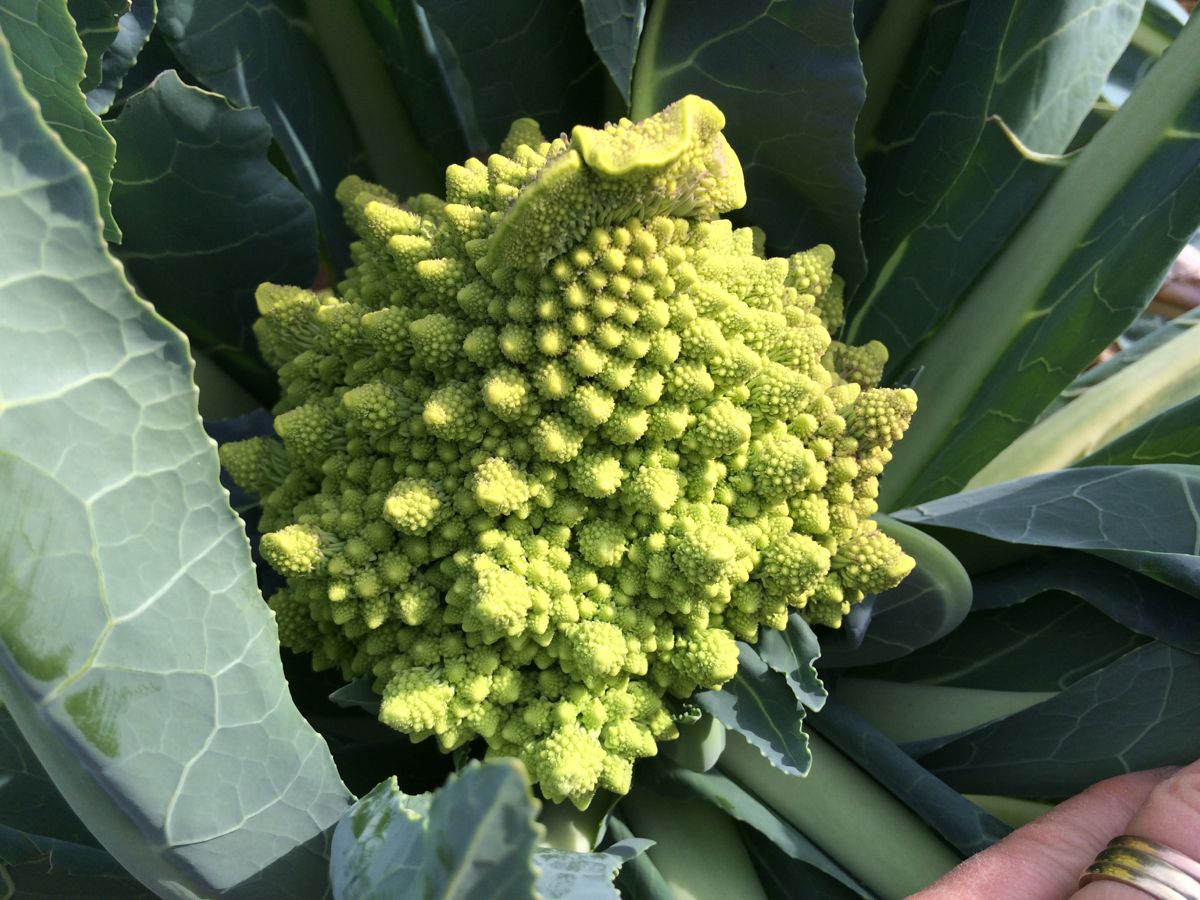
Romanesco broccoli, the prettiest fractal on the farm.
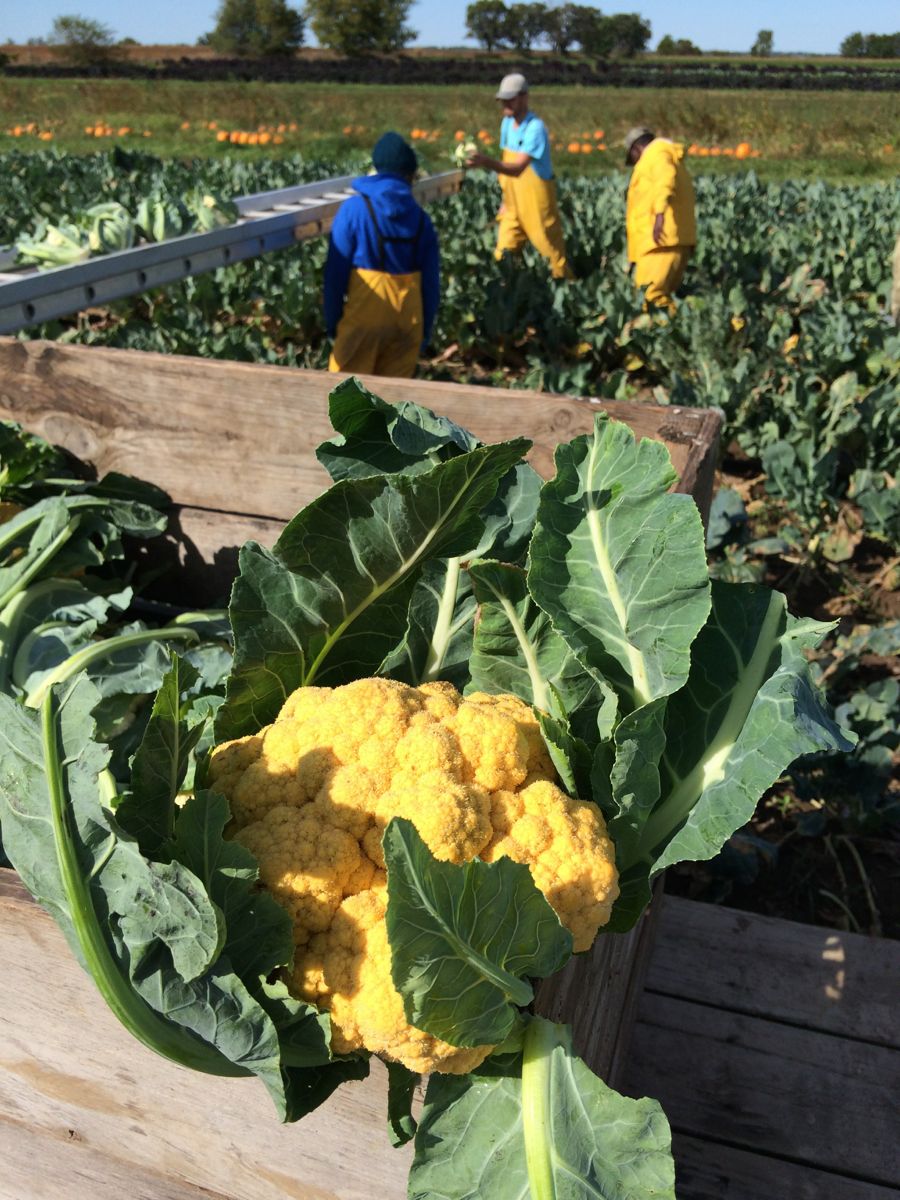
Purple, white and orange cauliflower.
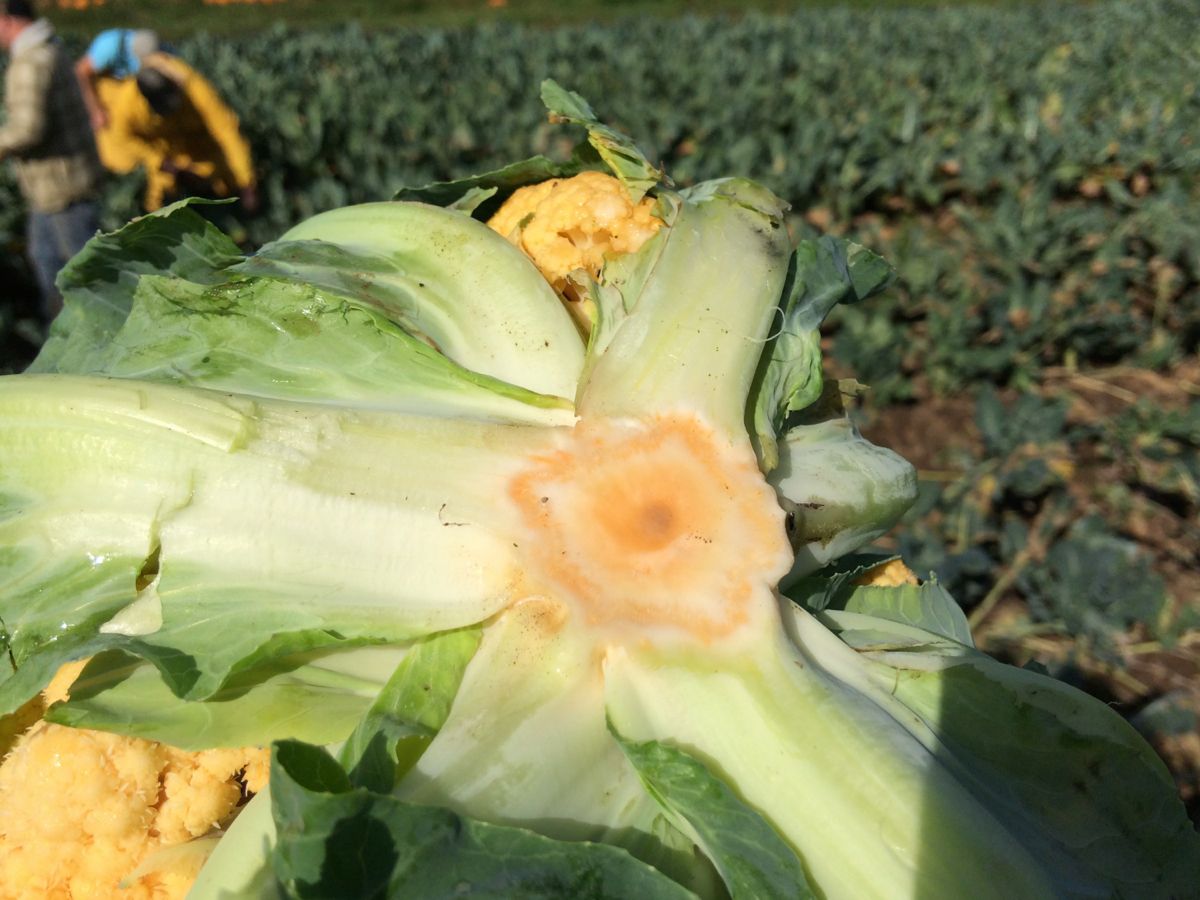
Even the stems of orange cauliflower are permeated with color.
Veggie List and Veggie Notes
Savoy cabbage
Butternut squash
Leeks, 1.5 – 2 lb
Carrots, 2 lb
Frying peppers, about 5
Poblano chiles, 2
Garlic
You’ll receive two of these:
– cauliflower
– Romanesco broccoli
– broccoli
Next week’s box will probably contain cauliflower OR Romanesco broccoli, winter squash OR sweet potatoes, mustard greens, carrots, onions, and more.
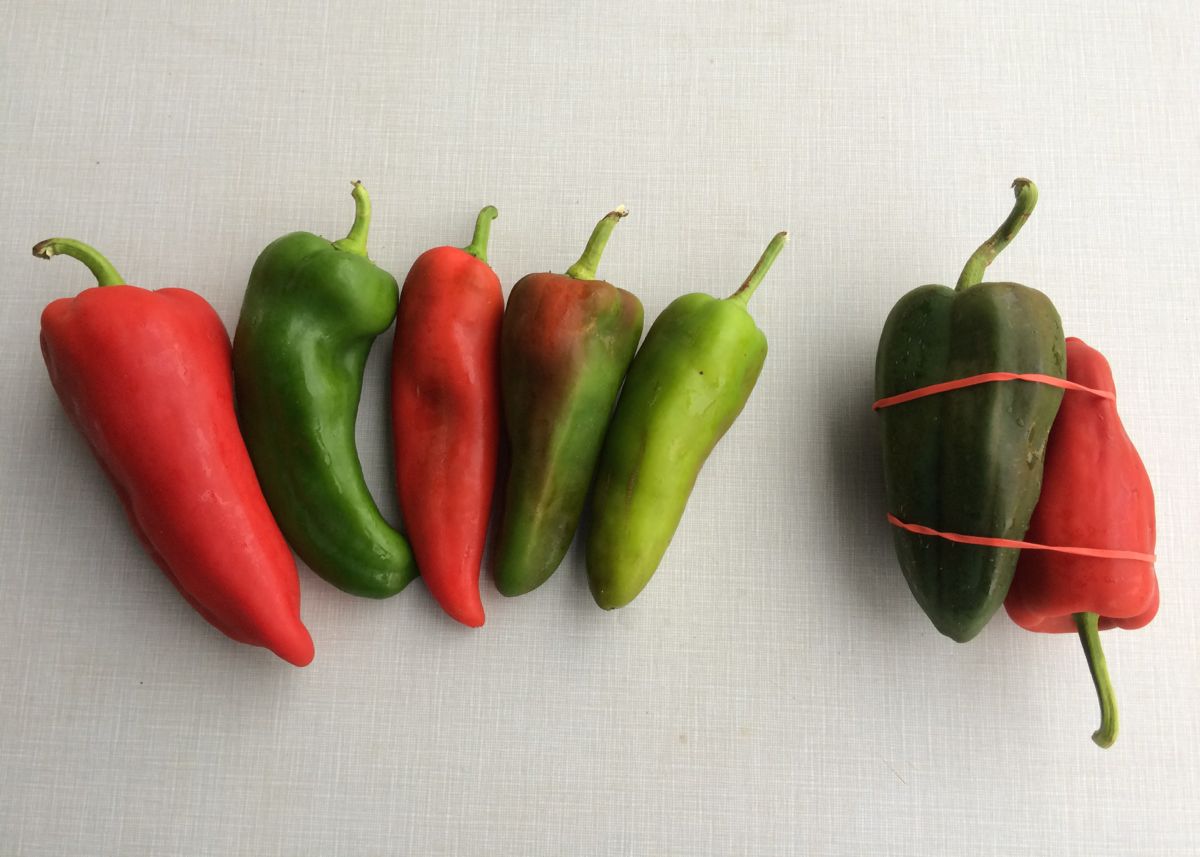
Sweet frying peppers on the left. Mildly spicy poblanos in bondage on the right. We avoid sending similar-looking peppers together when some are hot, some are sweet. It’s the end of pepper season, and our options have dwindled. Respect the rubber bands if you want to keep the types separate.
Frying peppers (long, slender, green or red) – These are sweet.
Poblano chiles (triangular, shiny, green or red) – These are mildly hot. Poblanos are the creme de la creme of chiles. They have lots of great flavor in combination with manageable heat. Steve protected these plants from frost so we would have the chiles for you. Roast and add to soup or casseroles. For our household, they are emblematic of fall cooking.
Savoy cabbage (round green cabbage with pretty, crinkled leaves) – Savoy cabbage can be handled and cooked the same as green cabbage.
Butternut squash – This is our “Metro” variety, a favorite because it cures and sweetens quickly after harvest. These are medium-sized squash, average weight <2.0 lb.
Tip for cutting winter squash
If you want to peel or dice your butternut squash, microwave the intact squash on high for one minute. That’s enough to warm and soften the squash, making it much easier to peel. I find this trick useful even when just cutting the butternut in half.
THIS WEEK’S RECIPES
Comforting Classics
Pulled Pork Sandwich with Sauteed Savoy Cabbage
Squash Cabbage and Tofu Thai Curry with Glass Noodles
Carrot Leek Soup
Parmesan Roasted Romanesco
Mashed Cauliflower
Salisbury Steak with Pepper and Mushroom Gravy
Outside the Box Recipes
Oven Braised Savoy Cabbage
Butternut and Poblano Quesadillas
Creamy Braised Leeks
Steamed Romanesco with Mustard Butter
Cauliflower Latkes
Muhammara
Kitchen Sink Recipe
Braised Chickpeas with Butternut Squash and Cabbage
Quick and Easy Meal Idea

